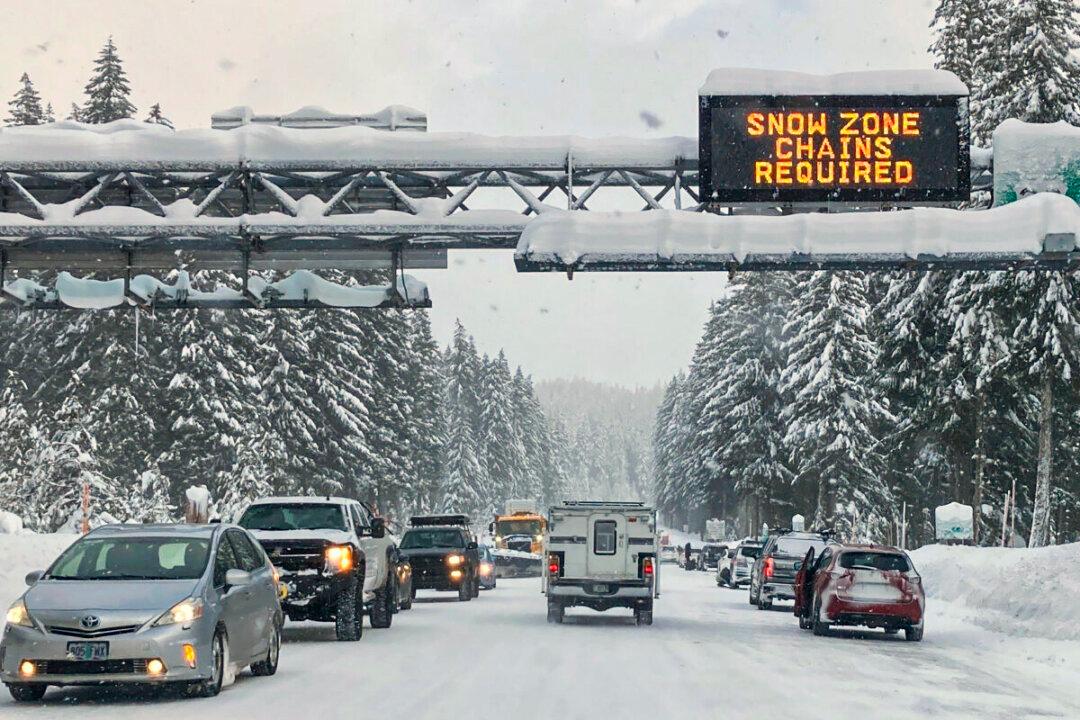SEATTLE—With temperatures in normally mild Seattle dropping well below freezing, Kaety West walked a short distance in the snow from the tent where she usually stays to find refuge at a small warming center at an American Legion hall.
“I’m not even willing to stay in it right now. It’s just so difficult,” she said of her tent on Monday.





